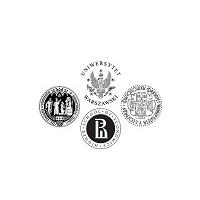Jewish Literatures in Central and Eastern Europe
As Hebrew has always been part of European civilisation, Jewish Literature has always been a part of European culture. Its was read by Jews and gentiles in all parts of the world. At the end of the nineteenth century, Odessa became the centre of Jewish literature. In Odessa, Hebrew was rediscovered as language of poetry and as a spoken language, here lived the fathers of modern Yiddish literature, it was the home of Isaac Babel’, Zeev Jabotinsky and the poet Semen Frug. Odessa was a centre of translations between the Jewish languages. It was the birthplace of the idea of “Jewish humanism”, an idea that will be a lodestar throughout the seminar.
The seminar begins with the multilingual Jewish culture of Odessa at the turn to the twentieth century. We will trace its roots in the European Haskala and its interaction with other centres of Jewish culture (Lviv, Warsaw, St Petersburg, Moscow and later Berlin). We will read poetry and prose written in Hebrew, Russian, Polish, Yiddish and German. We will investigate the influence of the Tanakh (the Hebrew Bible) on Hebrew, Polish and Russian poetry and, in a broader perspectives, the processes of secularisation which were enabled by the discovery that texts that had belonged to the sacred sphere (the Tanakh and the legends of the Talmud but also the beauty of rabbinical arguments) can be perceived as secular “literature”. The phenomenon of translation from Jewish into European languages and vice versa will be a key to understanding the changing role of Jewish letters within European culture. We will trace how some of the most prominent Russian poets (Vladislav Khodasevich, Valerii Briusov and Viacheslav Ivanov) translated Hebrew poetry. We will also reflect on the paradigm of “Athens vs. Jerusalem” in European literature and philosophy.
Our work will be based on the close reading of texts by Osip Rabinovich, Lev Levanda, Semen Frug, Isaac Babel’, Lev Lunts, H. N. Byalik, Saul Tchernichowsky, Shmuel Agnon, Ahad Ha’am, Joseph Klausner, M. M. Sforim, Sholem Aleichem, Salomon Dykman, Edmund Stein, Bruno Schulz, Debora Vogel, Franz Kavka, Jiři und František Langer und Emanuel Levinas.
All participants should have a knowledge of at least B1 in one Slavic language, a knowledge of Hebrew or Yiddish is not required. Translations will be provided whereever possible.
The module will be taught by Prof. Jörg Schulte in the summer semester 2021. It will begin on April 13 and take place on Tuesdays at 4 p.m. and on Thursdays at 4 p.m. You can join the seminar via this zoom link.
